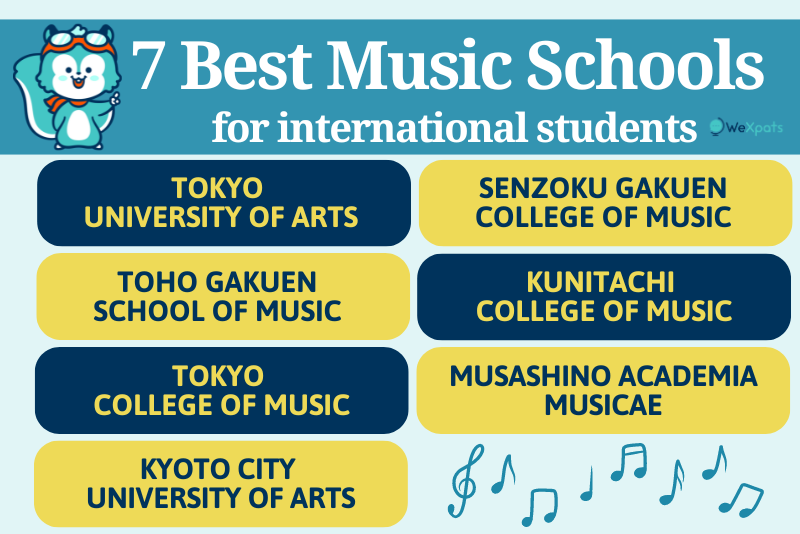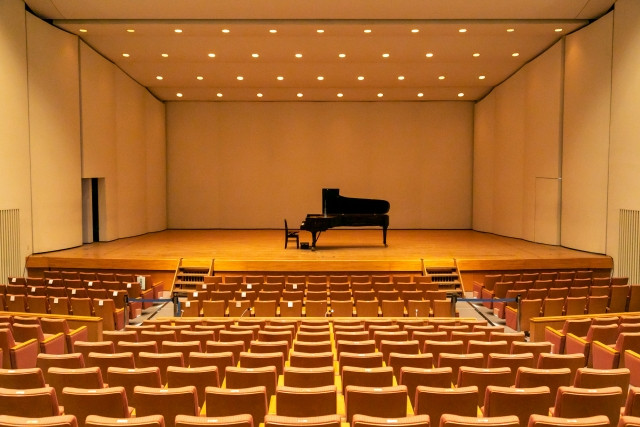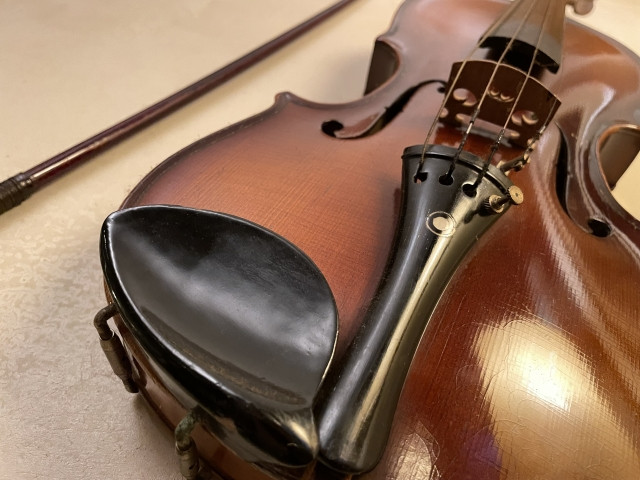Japan is one of the largest music markets in the world, and naturally, their music education is also at great levels. If you are aspiring to be a musician, why not consider studying music in Japan. We introduce some of the best music schools in Japan that accept international students.
First Published: 2020/09/08
Updated: 2024/06/03
Table of Contents
- Why You Should Study Music in Japan
- Famous Musicians from Music Schools in Japan
- 7 Best Music Schools in Japan for International Students
- Admission and Scholarships for Music Schools in Japan
Why You Should Study Music in Japan

Studying music in Japan offers a unique and enriching experience that goes beyond the confines of traditional academic settings. Here are compelling reasons why you should consider pursuing your musical education in Japan:
Cultural Diversity and Rich Musical Heritage
Japan boasts a rich cultural heritage that spans centuries. Studying music in this vibrant environment provides exposure to traditional Japanese music, instruments, and performance styles, offering much inspiration, and a diverse and immersive experience.
Cutting-Edge Facilities and Technology
Japanese music institutions often invest in state-of-the-art facilities and technology. Access to modern recording studios, performance halls, and digital music equipment enhances your learning experience and prepares you for the evolving landscape of the music industry.
Practical Experience Opportunities
Japan has always approached education holistically showing great value in practical outside the classroom activities. This is even more prevalent when it comes to music education. Students in music schools are encouraged and provided ample opportunities to perform not just in classroom and school events but also public performances.
Potential for Career Growth
With one of the largest music markets in the world, there are endless music career opportunities in Japan. Many music schools have close connections with music organisations and companies and so can help graduate students to find job opportunities. Furthermore, many professors and faculty members are also still active on the field, and can offer career advise.
Writer's Pick
Famous Musicians from Music Schools in Japan
There are many Japanese musicians who graduated from famous music schools, and here are just some of them.
Yamada Kosaku (composer)
Yamada Kosaku was a Japanese conductor and composer who pioneered Japanese modern music. His famous compositions include Ayame, Akatonbo, Kurai Tobira, and one of the most famous Japanese operas, Kurofune.
Yamada Kosaku’s music education began at the Tokyo University of Arts. After which he continued studies in Berlin. He returned to Japan with his knowledge of Western music and started releasing pieces that were different from traditional Japanese music at the time. His works and composition styles resulted in the modern Japanese music we know today.
Ozawa Seiji (conductor)
Ozawa Seiji is a renowned conductor who worked with major theaters, orchestras, and operas in Japan and overseas. His music career included the position of music director of the Boston Symphony Orchestra for 29 years. He also conducted at the Vienna State Opera, considered the most prestigious conductor job in the world.
Ozawa Seiji is an alumni of one of Japan’s top music schools, Toho Gakuen School of Music. He founded the Seiji Ozawa Music Academy and has continued to establish and oversee many other music education programmes around the world.
Saori from Sekai no Owari (pianist in J-pop band)
Sekai no Owari (End of the World) is a popular J-pop group known for their creative and unique performances. There are 4 members in the band: Nakajin (guitar), Fukase (vocalist), Saori (piano), and DJ L.O.V.E (DJ). You can hear their hit songs used in a variety of media, including anime, dramas and films. In 2017, they released their first international single under the name End of the World.
Saori, the pianist, is an alumni of Senzoku Gakuen College of Music, a renowned school for musicians. She has even written songs for other bands.
Tsuneta Daiki and Iguchi Satoru of King Gnu (J-pop / fusion band)
King Gnu became a huge hit when their song 白日 (Hakujitsu) was released in 2019.
Tsunata Daiki is the frontman of the group. He plays multiple instruments, including piano, cello, and contrabass. He is not only involved in King Gnu but also writes music for other artists, has his own music project called “Millennium Parade”, as well as heads a music production team called “PERIMETRON”. He attended but dropped out of Tokyo University of the Arts (he was a cello major), but ultimately continued to pursue music on his own terms.
Iguchi Satoru is the other vocalist in King Gnu. He and Tsuneta Daiki have been friends since middle school, and he also attended and went on to graduate from Tokyo University of the Arts as a vocal music major. He plays the keyboard in their performances.
7 Best Music Schools in Japan for International Students

Without further ado, if you are interested in studying music in Japan, here are 7 of the best music schools in Japan that accept international students.
1. Tokyo University of the Arts (東京芸大)
Tokyo University of the Arts is often considered the best music school in Japan. For international students, there are 4 main departments of music, fine arts, film and new media, and global arts.
Courses/sub-departments offered by the music department include:
- Composition
- Vocal Music
- Instrumental Music
- Conducting
- Traditional Japanese Music
- Musicology
- Musical Creativity and the Environment
- Special Graduate Courses
Apart from classroom activities, the University is also actively involved in various events and productions in Japan and also abroad. There are many clubs and circles so students can enjoy their hobbies for a fulfilling student life and study abroad experience.
2. Toho Gakuen School of Music (桐朋学園大学)
Toho Gakuen School of Music has courses that allows students to major in their chosen instrument:
- Piano
- Strings
- Winds
- Percussion
- Harp
- Period Instrument
- Voice
They also have majors in composition, musicology, and conducting. Teaching methods in Toho Gakuen vary from hands-on training, group practicing, and on-stage performing. They also offer non-degree programmes for international students to gain practical music experience; these courses are 90 days to 1 year only.
3. Tokyo College of Music (東京音楽大学)
The Tokyo College of Music is located in the center of Tokyo, with one campus at Naka-Meguro, and another at Ikebukuro. The college boasts a faculty of accomplished musicians and educators who guide students through a curriculum designed to foster technical proficiency, artistic expression, and a deep understanding of musical traditions. For international students, the Tokyo College of Music offers undergraduate, Master’s, and Doctoral programmes. There is also exchange programmes with partner institutions.
Undergraduate courses include:
- Vocal Music
- Piano
- Strings
- Wind & Percussion
- Composition
- Conducting
- Music Culture and Education
- Music Liberal Arts
- Wind Band
4. Kyoto City University of Arts (京都市立芸術大学)
The Kyoto City University of Arts, official abbreviation Kyogei (京芸), is Japan’s oldest university of arts.
It was first founded in 1880 as a school that specializes in painting but has since grown to offer education in all forms of art. Kyogei has contributed greatly to the world of art by producing many talented artists. For aspiring artists and also musicians, Kyoto City University of Arts is a compelling choice that guarantees a rich musical education in Japan.
Kyogei’s faculty of music offers undergraduate, master’s, and doctoral courses. Course offered include:
- Composition
- Conducting
- Piano
- Strings
- Brass, Woodwinds and Percussion
- Vocal
- Musicology
5. Senzoku Gakuen College of Music
Senzoku Gakuen College of Music prides itself on its education that draws out students’ creativity and individuality. The structure of their curriculum is flexible, comprising core subjects and electives, though some electives are exclusive to particular majors. Students are also provided many opportunities, around 200 a year, to perform in actual concerts to gain practical experience. Courses offered at Senzoku Gakuen College of Music include music and instrument courses, but also performance courses like classical ballet, theater and dance.
Here are the courses they offer:
- Wind Instruments
- Percussion Instruments
- String Instruments
- Piano
- Electronic Organ
- Vocal Music
- Japanese Traditional Music
- Rock & Pops
- Jazz and American Music
- World Music
- Music Design
- Composition
- Mediaarts
- Musical Creativity and the Environment
- Music Education
- Classical Ballet
- Musical Theatre
- Dance
- Voice Actor / Animation Song
6. Kunitachi College of Music (国立音楽大学)
Education at Kunitachi College of Music consists of a unique College Modular System that combines 2 years of compulsory studies to study music foundation, and 2 years of specialized modules where students can pick their electives to tailor their curriculum. Their choices of electives offered by the their two departments of music are extensive and includes the following by the Department of Performance and Composition:
- Vocal Music
- Piano
- Organ
- Electronic Organ
- String, Wind and Percussion Instruments
- Jazz
- Composition
- Computer Music
And the following by the Department of Music Culture and Education:
- Music Education Studies
- Music Therapy
- Music Information
- Early Childhood Music Education Studies
7. Musashino Academia Musicae (武蔵野音楽大学)
Musashino Academia Musicae is known for its experienced faculty members, many of which are still active in the field. Thanks to these excellent educators, the level and quality of education is good, leading to many excelling students. The university has 2 main departments, namely Musical Performance and Music Studies. Majors include:
- Piano
- Organ
- Wind Instruments
- Percussion
- String Instruments
- Vocal
- Virtuoso
- Composition
- Musicology
- Music Education
- Art Management
Other noteworthy music schools in Japan with international student admissions are:
- Showa University of Music
- Nagoya College of Music
- Aichi University of the Arts (English site renewal in-progress)
Admission and Scholarships for Music Schools in Japan

Admission into music schools in Japan is the same as for any other Japanese university, you will need to have finished at least high school education. Entrance examinations are usually required, the examination varies depending on the university and course. The most common entrance examination for international students is the EJU. For practical skills courses, an audition may be required. This can be by submitting a recording of yourself, or performing in-person, depending on the school.
International students at music schools can also be recipients of scholarships which may include full tuition waiver, partial tuition waiver, financial aid, etc. It is worth looking into what scholarships may be offered by the Japanese government, prefectural governments, universities, organisations, foundations, etc. You can check what available scholarships there are on JASSO’s Japan scholarship search tool.
To Close

Music has a strong presence in many parts of the world including Japan. Japan’s music market is the second largest after the United States with significant music corporations including Sony Music Entertainment. Some music schools in Japan have close ties with local music industries in Japan, which can be a great advantage to local and international students looking to establish a music career.
Why not take a chance and study music in Japan and realise your dream of becoming a musician!



































